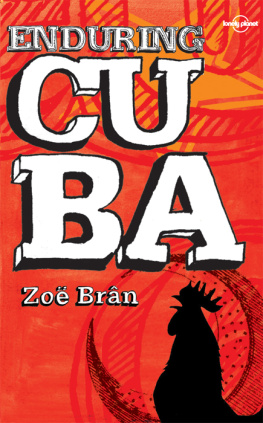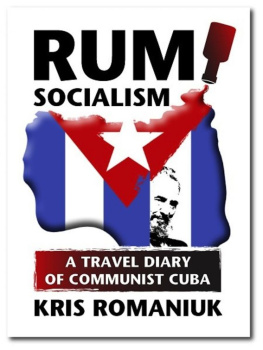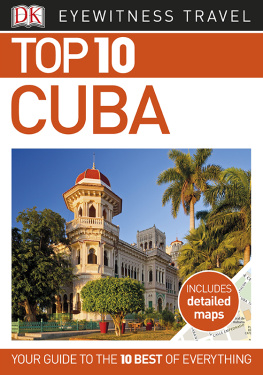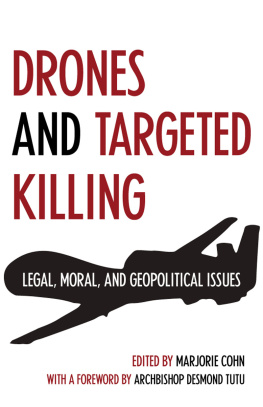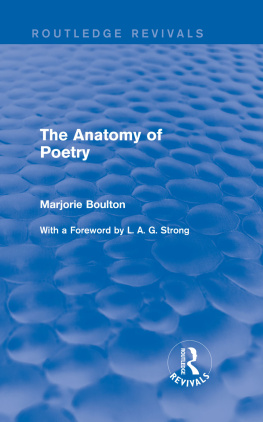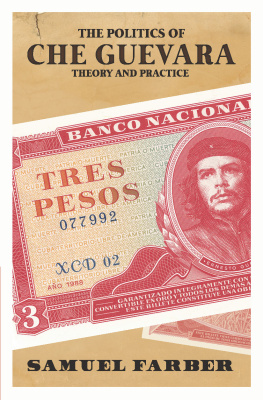 AFTER THE LAW
AFTER THE LAWA book series edited by John Brigham and Christine B. Harrington
PRODUCING LEGALITY
 AFTER THE LAW
AFTER THE LAW A book series edited by John Brigham and Christine B. Harrington
Also published in the series:
Gigs: Jazz and the Cabaret Laws in New York City
By Paul Chevigny
A Theory of Liberty: The Constitution and Minorities
by H. N. Hirsch
Inside the State: The Bracero Program, Immigration, and the I.N.S.
by Kitty Calavita
Explorations in Law and Society: Toward A Constitutive Theory of Law
by Alan Hunt
Virtuous Citizens, Disruptive Subjects
by Barbara Yngvesson
Contested States: Law, Hegemony and Resistance
by Mindie Lazarus-Black and Susan F. Hirsch
PRODUCING LEGALITY
LAW AND SOCIALISM IN CUBA

MARJORIE S. ZATZ
Published in 1994 by
Routledge
711 Third Avenue
New York, NY 10017
Published in Great Britain by
Routledge
2 Park Square, Milton Park
Abingdon, Oxon, OX14 4RN
Routledge is an imprint of the Taylor & Francis Group, an informa business
Copyright 1994 by Routledge
All rights reserved. No part of this book may be reprinted or reproduced or utilized in any form or by any electronic, mechanical or other means, now known or hereafter invented, including photocopying and recording, or in any information storage or retrieval system, without permission in writing from the publisher.
Library of Congress Cataloging-in-Publication Data
Zatz, Marjorie Sue, 1955
Producing legality: law and socialism in Cuba / Marjorie S. Zatz.
p. cm. (After the law)
Includes bibliographical references and index.
ISBN 0-415-90856-6 (hard : acid-free paper) : ISBN 0-415-90857-4 (pbk.)
1. Cuba Consitutional history. 2. Law and socialism. I. Title. II. Series.
KGN2919.Z38 1994
342.7291029dc20
[347.2910229]
94-8847
CIP
British Library Cataloguing-in-Publication Data also available
In memory of my sister
Carolyn Zatz
who inspired me in so many ways,
and for Rick, Richie, Patrick and Cameron
CONTENTS
This book could not have been written without the help and encouragement of friends and colleagues in Cuba and in the United States. I owe an inestimable debt to the many Cubans who gave freely of their limited time and scarce resources to make my research possible, and for their hospitality. Special thanks are due Dr. Mara Luisa Arteaga Abreu, who went far beyond her official capacity as gatekeeper at the Ministry of Justice to encourage others to talk with me, to provide me with documents, and to offer her own thoughts as someone intimately involved for many years in constructing Cubas new legal order. Dr. Julio Fernndez Bult and Omar Fernndez Jimnez, Dean and Vice-Dean respectively, of the University of Havana Law School during the years of data collection, willingly provided me with access, data, and insightful theoretical suggestions. The Law School faculty and staff graciously hosted me as a Visiting Researcher in 1989. I am grateful to them all.
Special recognition is due to my Cuban colleagues who, beyond consenting to multiple, lengthy interviews, also read and commented on drafts of the manuscript: Armando Castanedo, Marcelino Daz, Milagros Gmez, Lydia Guevara, Miriam Laou, Nancy Prez, Renn Quirs, and Antonio Rodrguez Gavira. This was a particularly time-consuming task because the manuscript was written in English and our discussions of it took place in Spanish.
James McDonald was the best research assistant imaginable, and I owe him my special thanks. Andy Hall, Heather Maclntyre, and Cheryl Perea spent hundreds of hours compiling the census data for the appendices. Kay Korman gave tirelessly of her time, assisting me with preparation of the manuscript and overseeing the administrative aspects of the grant. Her patience, good humor, and efficiency are without equal. Peg Bortner, Kitty Calavita, Susan Caringella-MacDonald, Drew Humphries, Nancy Jurik, and Michael Musheno offered encouragement and constructive criticisms. John Brigham and Christine Harrington were wonderful series editors. I thank them for their continued interest in the project and their helpful comments on drafts of the manuscript. Cecelia Cancellaro and the staff at Routledge made sure that all of the details of preparing the book for publication went smoothly.
The research was supported by a grant from the Law and Social Sciences Program of the National Science Foundation (#SES 8911816). I thank Felice Levine, Sarah Nerlove, and the panelists of the National Science Foundation for their interest in the project. Travel to Cuba was also funded by a grant from the Arizona State University Womens Studies program. While I thank them all, no U.S. or Cuban agency bears responsibility for any errors or interpretations of the data.
I thank my parents, Ruth and Nathan Zatz, for their support and encouragement over the years. My sister Carolyn was the closest thing I will ever have to a muse. I miss her sorely, and dedicate this book to her memory. I thank my husband, Richard Krecker, for his constant love and support, and for being my intellectual and emotional sounding-board. I also thank Richie and Patrick for their patience when I too often wanted to work for just a little longer. And finally, my little Cameron, whose impending birth was the impetus to finally finish writing and send the manuscript off.
I was only three years old when Fidel Castro and his compaeros marched triumphantly into Havana, but the Cuban revolution has fascinated me for as long as I can remember. In a revolutionary setting, anything seems possible. How, I wondered, does one translate a dream into the reality of a new social order? That was precisely the task confronting Cubas new leadership.
Over the years my interest narrowed from amorphous questions of how to create a totally new society to more focused inquiries into social and legal change in a revolutionary context. In 1985, I traveled to Cuba at the invitation of the Ministry of Justice as part of a group studying criminal justice and human rights. With the contacts I developed on that and subsequent trips, a study of the Cuban legal order began to appear possible. A grant from the Law and Social Science Program of the National Science Foundation and the interest of the Cuban Ministry of Justice and the University of Havana Law School made it feasible.
This book is my attempt to explain how a new legal order and a new legal consciousness came to be produced in Cuba. It is a story of how law and legality are understood by Cuban legal scholars and policy makers. It provides a window into the official construction of socialist legality in Cuba and how the legal order operates as seen by jurists, judges, and lay people. Throughout the analysis, I examine how contradictory economic, social, cultural, historical, political, and ideological forces originating within and outside Cuba shape and constrain its legal order, and how and why the Cubans have rewritten their laws as domestic and international conditions changed.
 AFTER THE LAW
AFTER THE LAW AFTER THE LAW
AFTER THE LAW MARJORIE S. ZATZ
MARJORIE S. ZATZ


